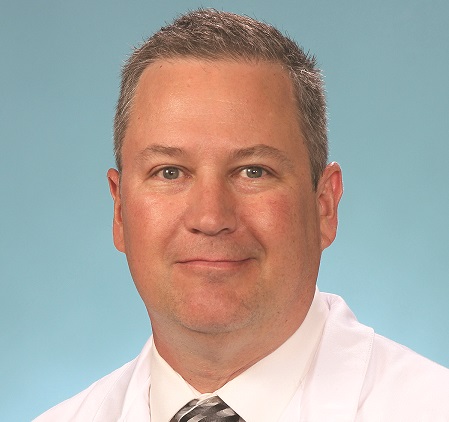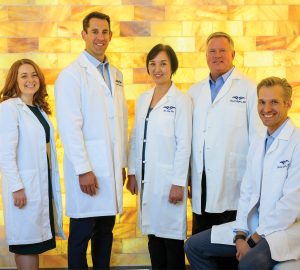Coming up with the right treatment plan for a cancer patient once involved a lot of guesswork and a limited number of choices. But no two people are alike, and everyone’s cancer is genetically unique. That posed a problem for physicians who wanted to choose the best protocol for each patient—and a challenge for researchers trying to develop effective weapons for the war on cancer.
Today, the hope-for-the-best approach is ending. Innovative tests available at Washington University Genomics and Pathology Services (GPS@WUSTL) are taking the guesswork out of cancer diagnosis, prognosis and treatment selection. “Thanks to information obtained by genomic profiling of tumors via next-generation sequencing, we can now look at the genetic code of a patient’s cancer and, in many cases, help physicians develop personalized treatment for each individual,” says Dr. Jon Heusel, Ph.D., GPS chief medical officer. “Not only can we often determine which drugs work best for each patient, but we also can rule out therapies that might be ineffective, thus saving time and reducing needless side effects, expense and stress for patients and their families.”
The test, the Comprehensive Cancer Gene Set, recently has been enhanced and expanded to include more genes for solid tumor analysis, useful for breast, lung, brain and other cancers, as well as a broad spectrum of blood cancers. “We had to improve the tests because the number of genes that impact cancer is growing as our knowledge increases,” Heusel explains. “Now we can learn even more about the type of cancer, how and where it might spread, risk for recurrence, and how it might respond to existing and emerging targeted therapies.”
The new method is more sensitive, generally requiring a minimal amount of DNA. “From a bit of tissue smaller than the tip of a pencil, we can test dozens of genes at once and focus on the ones that matter,” Heusel says. “We get more information and better information faster than ever before. We can help more people, and the rapid results are a godsend for patients with aggressively spreading cancers.”
GPS, established in 2011, is a collaboration between the genetics and pathology/ immunology departments at Washington University School of Medicine. The partnership has led to rapid technological advances, and GPS is a leader in the field. “Physicians nationwide rely on us for testing,” says Heusel, who also serves as associate professor of pathology/immunology and genetics at the School of Medicine. He and his colleagues work closely with researchers and oncologists throughout the region. GPS is a reference lab: tests must be ordered by a physician. Testing is covered by most insurance plans, and GPS handles insurance preauthorization.
“Five years ago, tumor profiling for personalized medicine was the stuff of science fiction,” Heusel says. “Now it’s a reality for many patients, and in the future, it will be the standard of care. We hope to change cancer from a terminal disease to a chronic condition that can be treated and managed by ever-evolving targeted therapies.”
Pictured: Dr. Jon Heusel, Ph. D.
Photo: Washington University Physicians
[For more information on Washington University Genomics and Pathology Services (GPS @WUSTL), call 314.747.7337 or visit gps.wustl.edu.]








